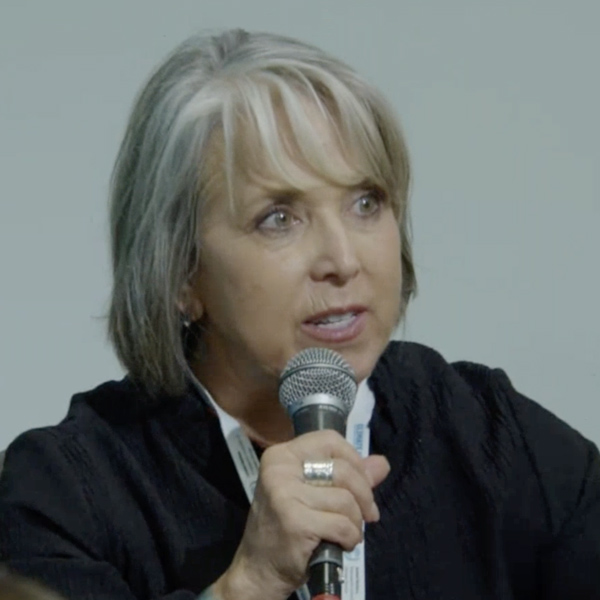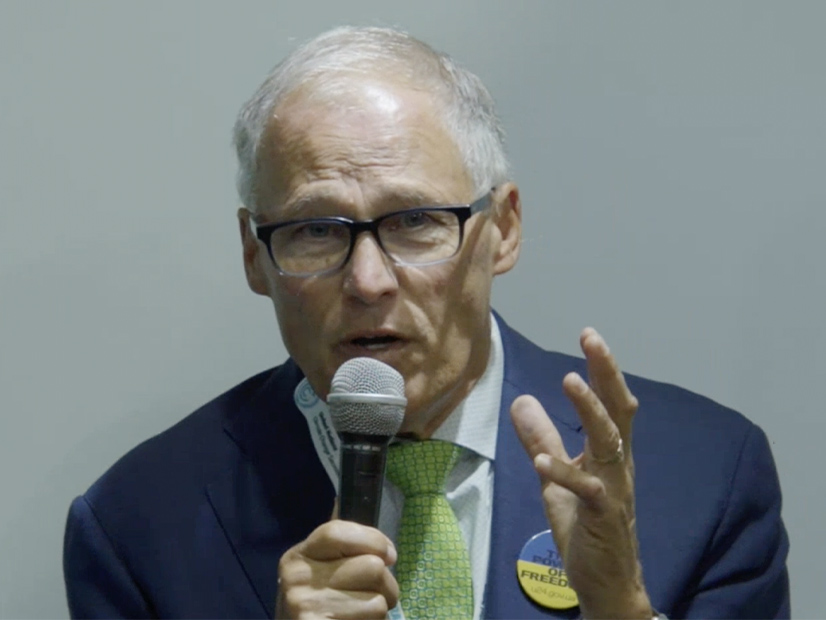Two Western governors speaking at the COP27 climate change summit said they see U.S. states leading the federal government in tackling climate change measures on the ground.
Washington Gov. Jay Inslee and New Mexico Gov. Michelle Lujan Grisham, both Democrats, shared their views during two panel discussions at the summit being held in Sharm El-Sheikh, Egypt.
Inslee said the states are positioned to move faster on climate change measures than the federal government.
“There’s nothing wrong with that,” he said.
Those measures include permitting, distributing grants and attracting the right skills to the appropriate alternative energy ventures within a state.
“None of this gets done until you get the state really engaged,” Inslee said.
States currently face a shortage of staff to handle the permitting of new alternative energy resources. “The least romantic thing in the climate change environment … is getting enough people to run the permitting process,” Inslee said, adding that he plans to seek extra money from Washington’s legislature in its 2023 session to hire the needed permitting staff.
 New Mexico Gov. Michelle Lujan Grisham | U.S. Climate Alliance
New Mexico Gov. Michelle Lujan Grisham | U.S. Climate Alliance
Grisham said individual states need to coordinate with each other to develop similar regulations governing matters related to climate change and the environment.
She cited New Mexico and Texas as an example. Eastern New Mexico and West Texas share the same aquifers and are both homes to oil fields, but New Mexico does not allow drilling into freshwater aquifers, while Texas does. That leads to Texas drilling into aquifers it shares with New Mexico, hampering the latter state’s environmental goals.
“We need to think of this like an interstate highway. Everything has to be connected,” she said, but coordinating regulations is difficult.
The federal government can help states meet their objectives through the provision of tax credits, the two governors said. Grisham said appropriations from the Inflation Reduction Act provide extra money to the states, which encourages them to try out new climate change measures. “The legislation makes every governor and policymaker less risk adverse,” she said
Inslee added that even the most seemingly benign climate measures will encounter pushback, citing Washington residents who object to the visual impacts of proposed solar and wind farms. “The NIMBYism we face will be prolific,” he said. (See Hearing Shows Solar Conflict in Sun-soaked Eastern Wash.)
Inslee argued that this issue, along with improving permitting, needs to be addressed soon. “We do not have time for 10-year arguments,” he said.



